August 2, 2018
This year’s Dental Health Week is all about “Watch Your Mouth – Not just your teeth. Not just your gums. Your whole mouth”. The major annual oral health promotion event of the Australian Dental Association takes place from the 6th – 12th of August 2018.
Good dental habits should be established from a young age. It’s important to stay on top of your child’s oral health as healthy baby teeth pave the way for strong adult teeth.
In the spirit of Dental Health Week, we asked our Coastal Dental Care dentists for tips on “watching” the mouths of our youngest ones. We’ve put together our dentists’ favourite tips to ensure your child’s oral health is the best it can be.
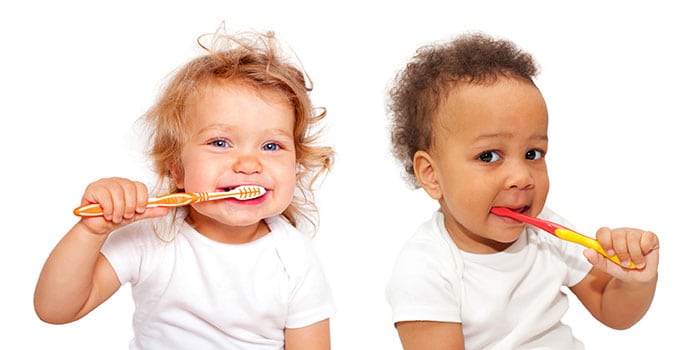
Tip 1: Good habits start early
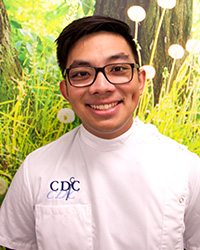
Dr David Li, Dentist, Emerald Lakes
When the very first baby teeth appear (usually around 6-8 months old) you should begin brushing your child’s teeth. For baby teeth, Dr David Li from Coastal Dental Care Emerald Lakes recommends “…using a special toothpaste and toothbrush for babies. A small toothbrush helps to access all areas around the child’s teeth and allows them to easily hold the toothbrush.”
It’s important to “get into good [dental] habits from an early age,” suggests Dr David Li. Young children will need your help to brush properly.
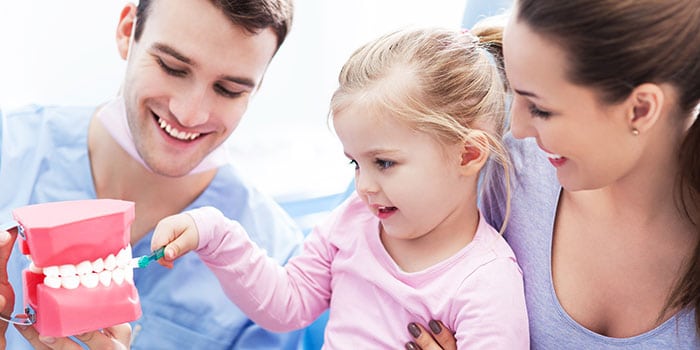
Tip 2: The right brushing technique
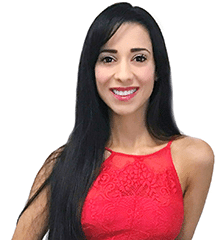
Dr Nehal Drummond, Dentist, Runaway Bay
Dr Nehal Drummond from Coastal Dental Care Runaway Bay suggests to “brush for 2 minutes morning and night making sure to brush all parts of each tooth!”
As well as brushing the right way, flossing daily is an important activity that removes a significant proportion of bacteria and plaque from teeth. Dr Drummond’s favourite motto is “floss the ones you want to keep!” which she says is all of them.
Using the right brushing technique is essential to cleaning ‘your whole mouth’ effectively. Find a complete, step-by-step guide on how to brush teeth for kids.
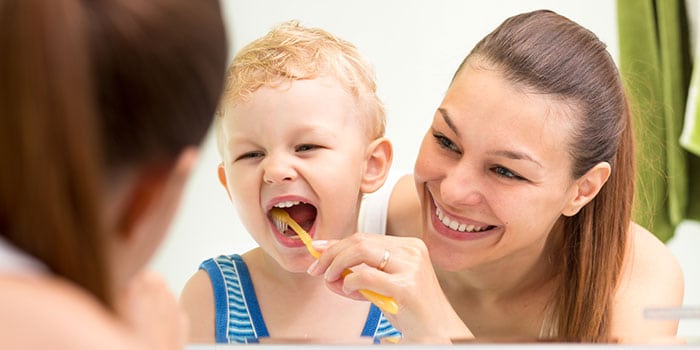
Tip 3: Help your kids to brush and floss
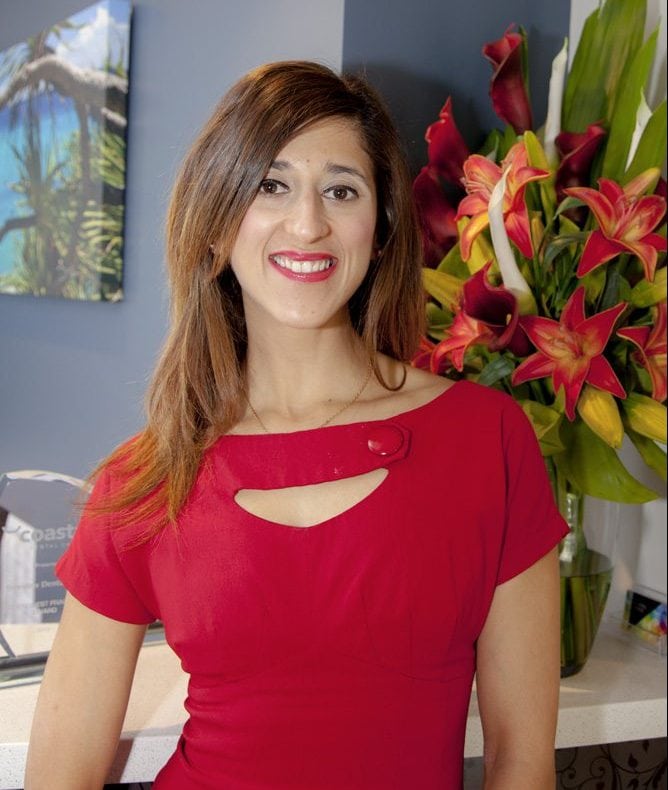
Dr Norah Ayad, Dentist, Burleigh
Dr Norah Ayad, owner of Coastal Dental Care Burleigh Waters, recommends helping kids “ …with brushing and flossing until the age of about 8 years old.
“It’s great to let kids have a go and get used to holding a toothbrush and brushing their teeth. But at very young ages, they have not yet developed the coordination and motor skills to perform tooth brushing or flossing thoroughly and effectively.”
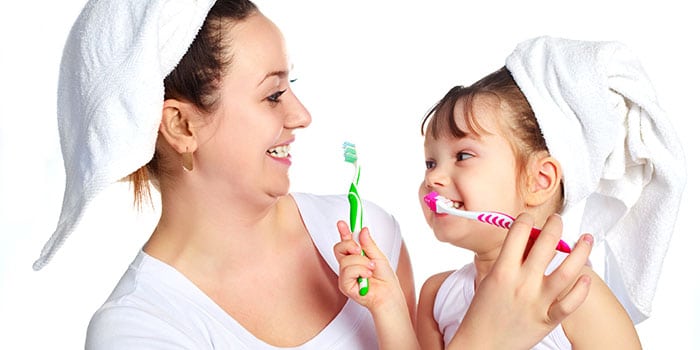
Tip 4: Make brushing fun
There are many ways you can make brushing and flossing a more enjoyable experience for your kids. This could be anything from games, rewards, apps, videos or music.
“Pick a song you like that’s around 2 minutes long to brush your teeth along to,” suggests Dr David Li. Not only does music help pass the time it takes to brush your teeth, it also helps keep your kids interested. As well, “if there’s a longer song and you don’t mind brushing for longer go for it,” says Dr David Li.
Tip 5: What to do when your child has a loose tooth
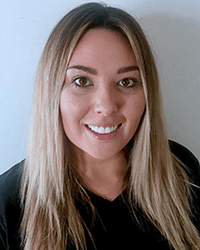
Dr Alexis Wiggins, Dentist, Redland Bay
“A loose tooth does not always mean the permanent tooth is ready to come out. If the tooth was knocked, an appointment with the dentist should be made to minimise the risk of damage to the permanent tooth or risk of infection under the baby tooth,” cautions Dr Alexis Wiggins from Coastal Dental Care Redland Bay.
If a tooth has partially come out, never put it back in. Instead ask your dentist for advice.
“The first teeth to erupt in children are also usually the first to come out. This means the front teeth will start to loosen around the age of 6 with the permanent teeth soon to follow.
“Do not try to pull a tooth that is not ready to come out, this may just cause unnecessary pain. Allow the child to wiggle the tooth until minimal force is necessary, minimising pain and bleeding,” suggests Dr Wiggins.

Tip 6: Healthy diet, healthy teeth
“Bacteria that cause holes in our teeth get bigger when we eat unhealthy foods like lollies and chips. Try to eat healthy fruit and vegetables instead,” advises Dr Drummond.
As well as fruit and vegetables, foods that are beneficial to teeth include cheese, milk, yogurt and almonds.
Drinking lots of water, especially after eating helps to flush food debris from teeth. It also boosts your saliva production which has natural proteins and minerals that protects tooth enamel.
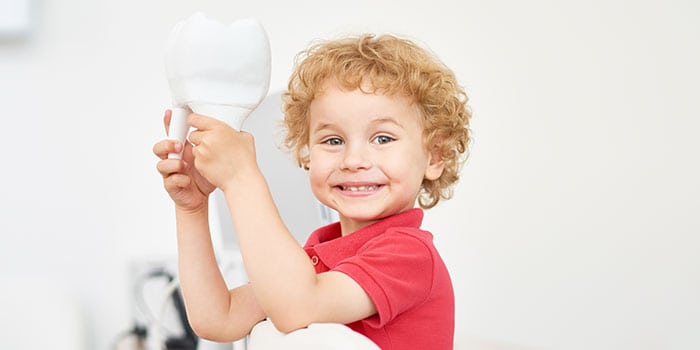
Tip 7: Time for the first dental visit
“Kids should start visiting the dentist from ages 2 and up. First experiences aren’t always about having a comprehensive check-up and clean but more about getting kids used to coming in to the dental clinic, the sights, the sounds, the tools and what to expect.
“This builds positive associations and allows us to get them into good habits early. Coming to the dentist shouldn’t just be reserved for when we have problems as it is often hard to build positive experiences if their first experience is for treatment is a toothache or a dental problem,” suggests Dr Norah Ayad.
Make your child’s first dental experience a positive one, book an appointment at one of our Coastal Dental Care locations today.

